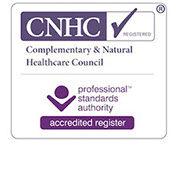Blog
Leaky Gut...Leaky Brain?
Recent Posts
Testing for BBB permeability
Blood Brain Barrier proteins: help determine a breach
Occludin & Zonulin: Antibodies to these proteins may suggest gut and brain permeability.
Homocysteine: increased levels have been associated with BBB permeability.
Gut testing and microbiome diversity: imbalanced bacteria and overgrowth of yeast are associated with neurological functions.
This may sound overwhelming but science has given us many tools to assist and improve function: in the words of Dr Tom O’Bryan – one of the leading functional medicine doctors specializing in autoimmunity and BBB function –
Intestinal permeability or leaky gut is often defined as an increase in the permeability of intestinal mucosa – permitting small molecules (including foods), toxins and bacteria to cross into the bloodstream.
The resulting immune system reaction, initiated by the presentation of these ‘invaders’ can potentially result in allergies, food sensitivities and ultimately systemic inflammation and autoimmune disease.
Science is now focused on the blood brain barrier and the gradual assaults that can attack the boundary that shields our brain and can result in the barrier becoming breached (leaky brain syndrome).
The connection between the brain and the gut has demonstrated that the same proteins can contribute to the leakiness of both gut and brain, in addition to lungs and bladder.
In normal circumstances, our central nervous system (CNS) polices the molecules and prohibits unwanted particles from entering our brain, just allowing certain permitted substances (oxygen, hormones and specific chemical messengers) to enter the brain and prohibiting damaging chemicals, inflammatory mediators, immune cells, viruses and toxins.
This barrier’s integrity, which is comprised of a single layer of cells, can be disrupted by numerous influences including:
Inflammation: Increased CRP (C-Reactive Protein) increases BBB permeability, leading to impaired brain function.
Lipopolysaccharides (LPS) are bacterial toxins that can result from gut bacteria
Obesity – increasing inflammation, affecting BBB permeability
Stress – increases pro-inflammatory effects which increase BBB permeability
Bacterial Infection – which can result in breakdown of the BBB
Leaky gut – a leaky gut can impact the BBB
High blood sugar and diabetes – hyper and hypoglycemia are associated with altered BBB integrity
Sleep Restrictions – chronic sleep loss affects permeability of the BBB.
High Homocysteine – high levels are a risk factor for heart disease, but also increase permeability of the BBB.
Signs and Symptoms of a leaky brain
Brain Fog: cognitive dysfunction that interferes with cognitive ability, concentration, inability to multitask and memory (short and long term).
Chronic inflammation can result in dysfunction and can interrupt brain activity, leading to depression, anxiety and autoimmune brain disorders.
Leaky brain has also been associated with: Alzheimer’s disease, schizophrenia, autism spectrum disorders, multiple sclerosis, huntington’s and most recently, bipolar disorder.
How to support your BBB
Follow an anti-inflammatory diet: Avoid Gluten – which can disrupt barrier function.
Include: vegetables, fruits, oily fish, nuts & seeds, healthy oils, grass fed meats & organic eggs, whole grains if tolerated, herbs and spices.
Balance blood glucose levels by avoiding sugars and eating balanced meals of proteins, fats and carbohydrates.
Reduce stress by eating meals sat at a table, exercising, relaxing and sleeping well.
Reduce high levels of homocysteine – nutritional therapist are able to check this.
Eliminate infections and toxins that may contribute to barrier dysfunction.
Certain supplements are associated with repairing barriers including:
Alpha-Lipoic Acid,
Collagen, Curcumin,
Vitamin D, Fish oils & Glutamine.
References:
Beard, R. Reynolds, J. Bearden, S. (2011). ‘Hyperhomocysteinemia increases permeability of the blood-brain barrier by NMDA receptor-dependent regulation of adherens and tight junctions’, Blood, 118 (7): 2007-2014.
Esposito, P. Gheorghe, D. Kandere, K. et al. (2001). ‘Acute stress increases permeability of the blood brain barrier through activation of brain mast cells’, Brain Research, 888 (1): 117-127.
Guillemot-Legris, O. Mucciolo, G. (2017). ‘Obesity- Induced Neuroinflammation: Beyond the Hypothalamus’, Trends in Neurosciences, 40 (4): 237-253.
Hung, H. Abba, K. Pramod, M. et al. (2012). ‘C-Reactive Protein Increases BBB Permeability: Implications for Obesity and Neuroinflammation’, Cell Physiology and Biochemistry, 30 (5): 1109-1119.
He, J. Husuchou, H. He, Y. et al.(2014). ‘Sleep Restriction Impairs Blood-Brain Barrier Function’, The Journal of Neuroscience, 34 (44): 14697-14706.
Kelly, J. Kennedy, P. Cryan, J. et al. (2015). ‘Breaking down the barriers: the gut microbiome, intestinal permeability and stress-related psychiatric disorders’, Frontiers in Cellular Neuroscience, 2015 (9): 392.
Leppert, D. Leib, S. Grygar, C. et al. (2000). ‘Matrix Metalloproteinsase (MMP)-8 and MMP – 9 in Cerebrospinal Fluid during Bacterial Meningitis~: Association with Blood Brain Barrier Damage and Neurological Sequelae, Clinical Infectious Diseases, 31 (1): 80-84.
Obrenovich, M. (2018). ‘Leaky Gut, Leaky Brain’, Microorganisms, 6 (4): 107.
Patel, J. Frey, B. (2015). ‘Disruption in the Blood-Brain Barrier: The Missing Link between Brain and Body Inflammation in Bipolar Disorder’, Neural Plasticity, 2015 (708306): 12 pages.
Perry, V. (2010). ‘Contribution of systemic inflammation to chronic neurodegeneration’, Acta Neuropathologica, 120 (3): 277-286.
Prasad, S. Sajja, R. Naik, P. et al. (2014). ‘Diabetes Mettitus and Blood-Brain Barrier Dysfunction: An Overview’, Journal of Pharmacovigilance, 2 (2): 125.
Theoharides, T. Stewart, J. Hatziagelaki, E. et al. (2015). ‘Brain fog, inflammation and obesity: key aspects of neuropsychiatric disorders improved by luteolin’, Frontiers in Neuroscience, 2015; (9): 225.







